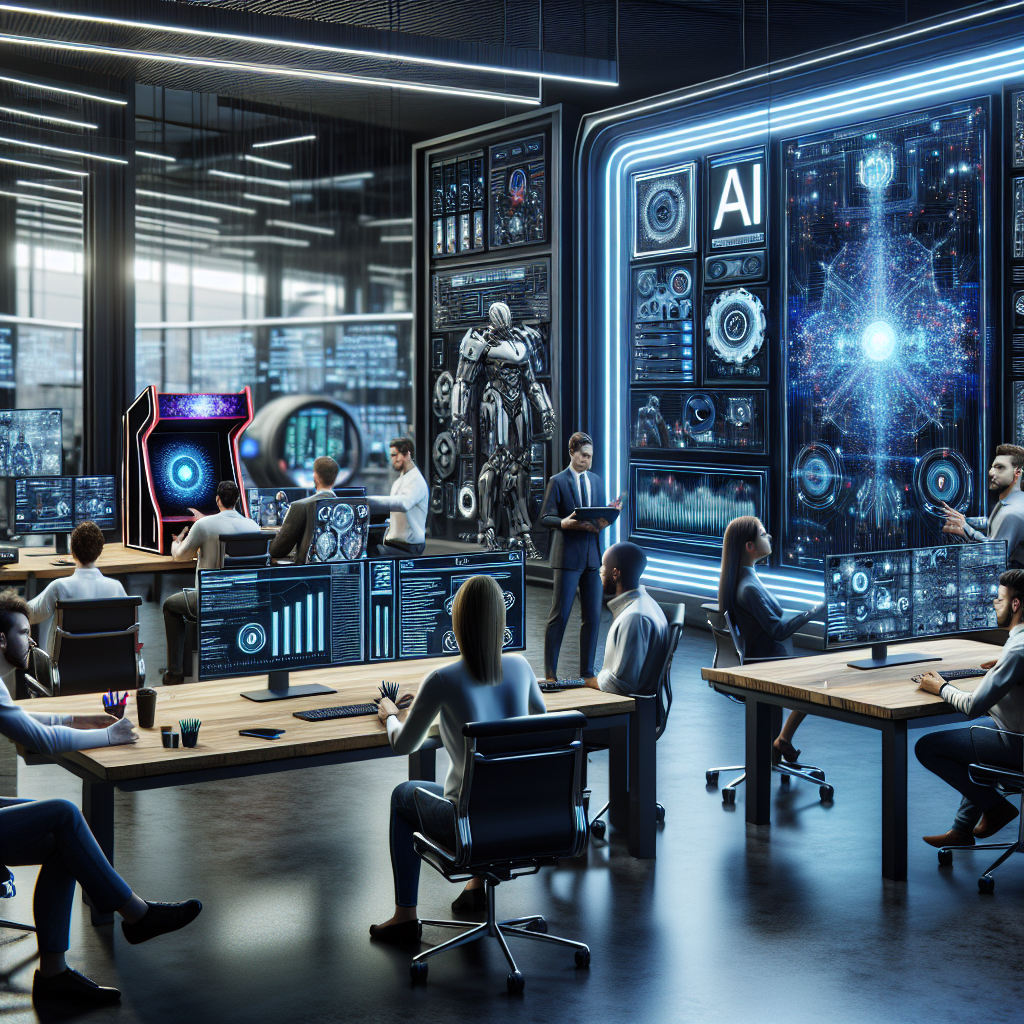
The Accidental Tech Boom: What AI’s Gaming Origins Can Teach Entrepreneurs About Business Breakthroughs
The AI revolution didn’t start in Silicon Valley boardrooms or research labs — it began on the pixelated battlefields of video games. This article explores why the biggest business innovations often come from unexpected places and what entrepreneurs can learn about spotting hidden opportunities before they become mainstream.
Key Takeaways
- The most transformative innovations often emerge as byproducts of solving unrelated problems.
- AI owes much of its explosive growth to an industry that was never designed to create it — gaming.
- Entrepreneurs should focus on solving deep, persistent problems exceptionally well instead of chasing trends.
- Building flexibility into business models and paying attention to how technology is being repurposed can reveal new opportunities.
- Companies that adapt to unexpected breakthroughs, like NVIDIA pivoting to AI hardware, thrive in rapidly evolving industries.
How Gaming Accidentally Built the Future of AI
In the early 2000s, NVIDIA, AMD, and other gaming hardware manufacturers were locked in an arms race to create more powerful graphics processing units (GPUs) capable of rendering complex, hyper-realistic video games. Their goal? Achieve high frame rates, smooth animations, and realistic physics, which required massive parallel computations — tasks that traditional CPUs struggled to handle efficiently.
To solve this, NVIDIA developed CUDA in 2006, allowing GPUs to handle more than just graphics and enabling developers to harness their parallel computing power for various applications. This capability, which seemed niche at first, caught the attention of AI researchers. In 2012, NVIDIA GPUs were used to train AlexNet, a deep learning model that excelled in an image recognition contest, thanks to its ability to process thousands of calculations in parallel, reducing AI training time significantly.
Today, major AI applications like ChatGPT and self-driving cars rely on GPU-powered deep learning — hardware originally designed for rendering video games.
The Hidden Pattern of Business Breakthroughs
AI’s origins in gaming are not isolated. History is full of major innovations that came from solving unrelated problems.
- The Internet was initially developed by the U.S. military for resilient communications during nuclear war but now underpins global business.
- YouTube began as a video dating site before becoming the world’s largest video-sharing platform.
- Slack was created as an internal chat tool for a struggling gaming startup before becoming essential for workplace communication.
- SpaceX’s reusable rockets, built to lower space travel costs, are now poised to dominate global internet coverage through Starlink.
Lessons for Entrepreneurs: How to Spot Hidden Opportunities
1. Follow the Pain Points, Not the Hype
NVIDIA’s goal was to enhance gaming performance, not build AI chips. Their solution to a specific problem revealed a larger market. Entrepreneurs should identify industry constraints and focus on solving deep problems rather than chasing trends.
2. Observe How Technology Is Being Repurposed
AI researchers repurposing NVIDIA’s GPUs for machine learning is a perfect example of how user experimentation often unveils new opportunities. Entrepreneurs should watch for how their technology is used unexpectedly by researchers and developers.
3. Build Flexibility into Your Business Model
To thrive from accidental breakthroughs, businesses need to be agile enough to pivot or expand. NVIDIA’s ability to pivot towards AI hardware showcases the importance of adaptable business structures. Entrepreneurs should consider if their current model can accommodate unexpected breakthroughs.
The Future of Unintentional Innovation
Disruptive technologies are likely developing in industries unrelated to AI:
- Battery improvements for consumer electronics are accelerating breakthroughs in energy storage that could revolutionize green energy.
- Quantum computing is being developed for cybersecurity but could revolutionize AI and material science.
- Augmented reality (AR) for gaming might redefine remote work, training, and communication.
The next big innovation might not come from where everyone expects. It will likely emerge from a small team solving an industry-specific problem exceptionally well, just as AI did from gaming.
Stay Open to the Unexpected
Entrepreneurs should remain vigilant for unanticipated breakthroughs, alternative use cases, and unintended consequences. These could hold the key to seizing new opportunities.
Because the biggest innovations often start where you least expect them.
Source: https://www.entrepreneur.com/starting-a-business/what-ais-gaming-origins-can-teach-us-about-business/487364

